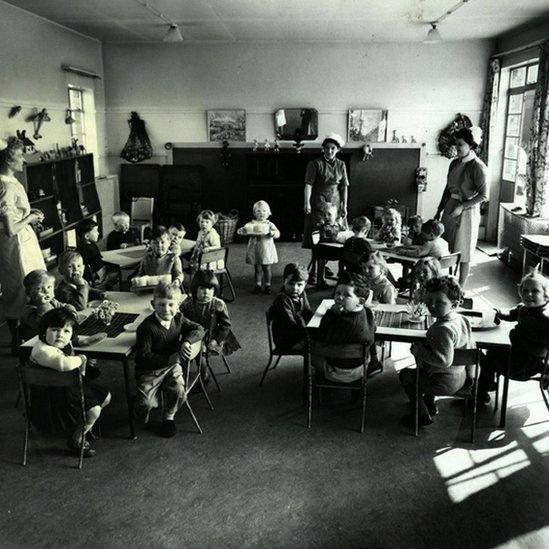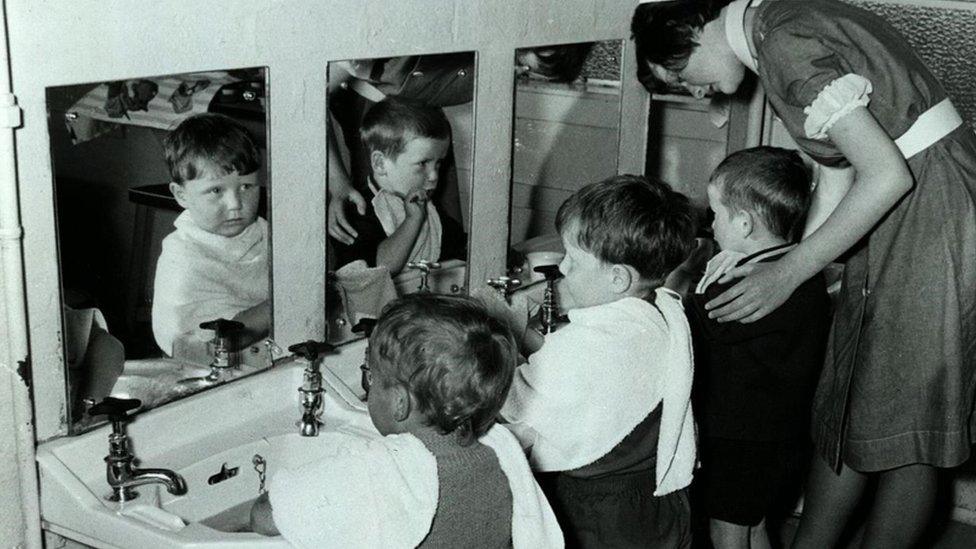Volunteers from 1950s study line up for depression research
- Published

Children born in the 1950s were involved in the original study
Hundreds of people who grew up in the 1950s could hold the key to a deeper understanding of depression, researchers believe.
More than 600 volunteers in Aberdeen and Dundee have already been recruited for the £4.7m study.
Many of them took part in a 1962 study led by the University of Aberdeen, allowing researchers to build up a lifelong profile of them.
Findings will be used to develop future treatments for depression.
The Stratifying Resilience and Depression Longitudinally (STRADL) study involves researchers at the universities of Aberdeen, Dundee and Edinburgh, and is funded by the Wellcome Trust.
It uses brain scans, blood tests and cognitive tests to study people with and without a history of depression in a bid to identify common risk factors and new treatments.
'Helps us understand'
More volunteers, external are still being sought.
Children born in Aberdeen between 1950 and 1956 were involved in the original 1962 study.

Prof Alison Murray, who is leading the study in Aberdeen said: "Depression remains very complicated to diagnose. There is no simple set of criteria that allow us to identify those who are most at risk and how best to treat them.
"The STRADL study aims to reclassify depression based on biology. By gathering information such as brain scans, cognitive tests and other clinical measurements, we hope to be able to better categorise people and as such identify more specific areas to develop new treatments.
"The beauty of working with the Aberdeen children of the 1950s cohort is that we can compare the results of people who have depression and those who don't, not just today, but also from when they were in primary school.
"This helps us better understand why even when people who are exposed to the same risk factors in life, some are resilient and don't get depression, whilst others do."
'Long association'
Volunteer Mairi Blair said: "I do not think depression is really different to any other illness, you cope with it.
"The brain is such a fascinating organ; are there reasons I behave in certain ways?
"If it helps then it's all positive."

Fellow volunteer Neil Murray said: "I do remember being in primary school with tests, but did not realise it was the start of a long association with this study."
Any members of the Children of the 1950s cohort who would like to get involved in the study can contact 01224 438443 or children1950s@abdn.ac.uk
- Published6 July 2010